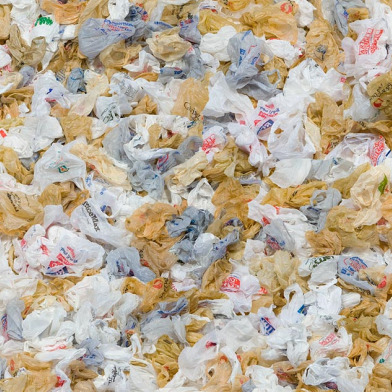Report: Proposed Plastic Bag Fee And Ban Good for Jobs, Business
 Make no mistake — there’s no plastic bag ban in San Francisco, where 167 million disposable plastic bags are distributed every year. That’s bad for the environment — and, currently, bad for business, according to a report released Thursday.
Make no mistake — there’s no plastic bag ban in San Francisco, where 167 million disposable plastic bags are distributed every year. That’s bad for the environment — and, currently, bad for business, according to a report released Thursday.
Extending the city’s restrictions on bags — currently only applicable to chain supermarkets and drug stores — as Supervisor Ross Mirkarimi proposes, will reduce single-use plastic bag use to nil, and will mean lower consumer prices, the report says.
If approved, the new bag regulations will go into effect for all retail establishments starting in July 2012, then for food establishments in 2013,. At that point, almost all (the proposal includes certain exemptions such as “doggy bags” used to take leftovers from restaurants) plastic bags will be verboten, and paper bags will carry a $0.10 fee.
By 2014, when the fee is scheduled to increase to $0.25 per bag, San Francisco shoppers will be spending $20 million on single-use paper bags, the report says.
Keep in mind retailers will pocket the $0.10 and, eventually, the $0.25 fee. This small profit for bags versus losing the overhead currently spent on bags will spell an extra $10-12 million annually in retailers’ pockets, and will eventually mean lower retail prices for consumers as this windfall is passed onto consumers in the form of cheaper goods, a city Controller’s report theorizes.
“[Retailers] will retain the bag charge as higher profits. In addition, the reduction in plastic and paper bag use will reduce retailers’ overhead costs, also… increasing their profits,” the report says.
“However… competition will force down retail prices, and roughly half of this higher profit will be returned to consumers in the form of lower prices.”
Keep in mind that all single-use or compostable bags — paper or plastic — are bad in that they create litter and pollute, either waterways (plastic) or the atmosphere (paper).
Elsewhere around the world, charges for bags have worked to effect: in Ireland, where an equivalent $0.21 fee (0.15 euro) on plastic bags has been in effect for almost 10 years, new bag use has been reduced by 90 percent, according to statistics.
The ban will also create around 25 jobs, not much, but “a prime example of real green jobs,” Mirkarimi said via text message.
The bag ban looks destined to pass, with several supervisors as well as the moderate influence of the Chamber of Commerce on board.
Word is that Mayor Ed Lee also supports the initial $0.10 bag fee but is wary of the potential $0.25 cent fee in 2014. Christine Falvey, Lee’s spokeswoman, did not answer a message seeking comment.
Jobs, feeling green, and a unified city family? What’s not to like? Plenty, according to merchants and retailers along the Clement Street corridor, for example.
In this stretch of San Francisco, most stores are small businesses, and many are run by Cantonese or Russian-speaking merchants, where all sorts of misinformation regarding the bag is running rampant, according to David Lee, executive director of the Chinese American Voter Education Committee.
For example, there are rumors that the bag ban extends to all plastic products, from garbage and yard waste bags to the sheeting used to wrap mattresses or other goods.
There’s also a doubt as to the city’s enforcement ability, Lee said. “An enforcement apparatus needs humans,” he said. “How’s that going to work?”
The current bag reduction ordinance is punishable by infractions of up to $500 per instance. Business may apply for a waiver for exemptions of up to one year for the proposed blanket ban.
There is recognition among Chinese merchants and restaurants — famous for the signature pink plastic bags — that plastic use is rampant and needs to be reduced, according to Lee.
There is bad feeling, however, that the ban is being rushed to law without adequate outreach to non-English speaking communities like Chinese-speakers, among whom Lee is organizing signature-gatherers to protest the increase to $0.25 cents in July 2014.
He has collected 500 signatures as of Thursday, he said.
“San Francisco is already a difficult place to live, work, run a business — and even to visit,” Lee said. “Have they [the law’s sponsors] thought this through? Is this just a feel-good piece of legislation — is it going to be another Happy Meal fiasco?”
Want more news, sent to your inbox every day? Then how about subscribing to our email newsletter? Here’s why we think you should. Come on, give it a try.









